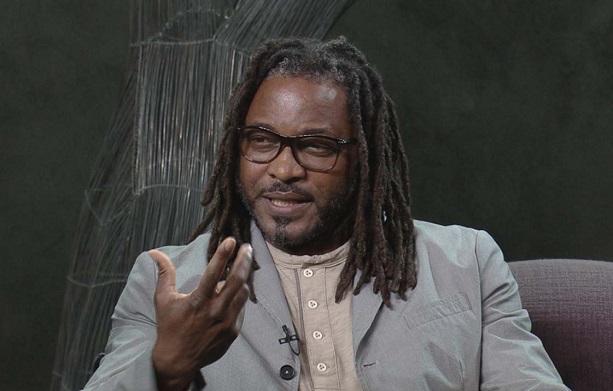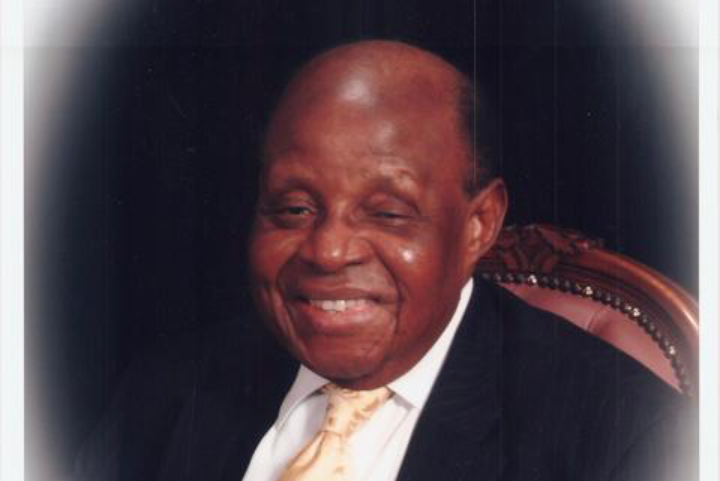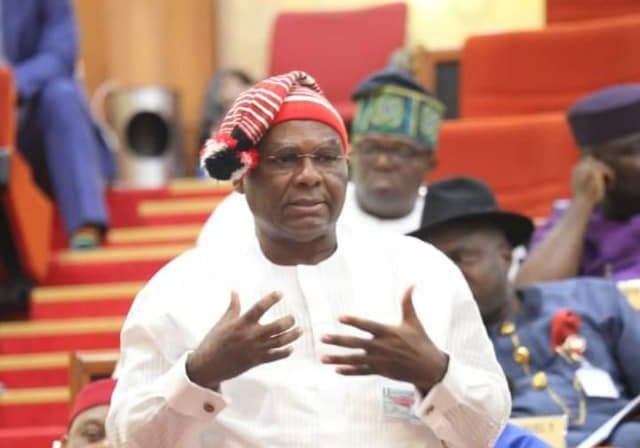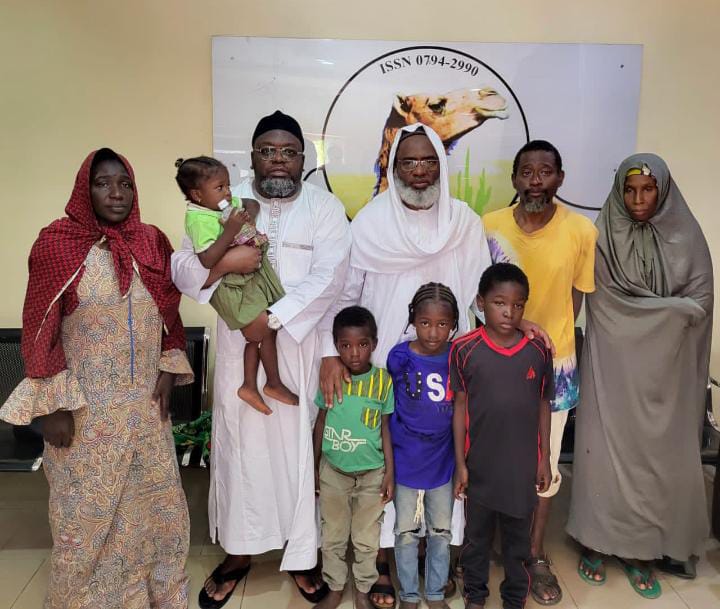INTERVIEW: Shooting 'Blood Sisters' at peak of COVID-19 scary, says Biyi Bandele
In the lead-up to the release of ‘Blood Sisters’ and hot on the heels of the movie’s Netflix debut, Biyi Bandele, like other executives, was inundated with a series of tasks typical of media rounds. Talks abounded on the ingenuity he and Kenneth Gyang put into directing the crime drama. What no one foresaw was that the filmmaker-cum-novelist would, in two months, be written about in past tense.
Biyi Bandele is dead. He breathed what became his last on Sunday, July 7, in a development that has since plunged his family, friends, associates and acquaintances into mourning with condolences pouring in from well-wishers still trying to come to terms with the fact that the industry has lost yet another prodigious filmmaker. Although the family didn’t divulge much about the circumstances of his death, his daughter Temi described it as “unexpected.”
Bandele was the one who delved into multiple fields, cutting across fiction, theatre, journalism, TV, film and radio.
Bandele was born in Kafanchan, Kaduna state, in 1967. His father Solomon was a veteran of the Burma Campaign, a series of battles fought in the colony of Burma in World War II, while Nigeria was still part of the British Empire. Bandele spent his first 18 years in the north-central part of the country, with a strong ambition to become a writer.
Advertisement
He was only 14 when he won a short-story competition. He would move to Lagos in 1987 and then studied drama at the Obafemi Awolowo University, Ile-Ife. Bandele won the International Student Playscript competition of 1989 with an unpublished play ‘Rain’ before claiming the 1990 British Council Lagos Award for a collection of poems.
Playwright, filmmaker and novelist — many sides, one storyteller
Bandele moved to London in 1990 at 22 with the manuscripts of two novels. His books were published and he was given a commission by the Royal Court Theatre. Bandele worked with major theatre companies including the Royal Court Theatre and the Royal Shakespeare Company. He as well wrote radio dramas and screenplays for television.
Advertisement
His plays include ‘Marching for Fausa’ (1993); ‘Resurrections in the Season of the Longest Drought’ (1994); ‘Two Horsemen’ (1994); ‘Death Catches the Hunter and Me and the Boys’ (1995); and ‘Oroonoko’, a novel adaptation.
In 1997, Bandele did a successful dramatisation of Chinua Achebe’s ‘Things Fall Apart’. ‘Brixton Stories’, Bandele’s stage adaptation of his own novel ‘The Street’ (1999), premiered in 2001 and was published in one volume with his play ‘Happy Birthday Mister Deka’, which premiered in 1999. He also adapted García Lorca’s plan ‘Yerma’ in 2001.
Bandele was a writer-in-residence with Talawa Theatre Company from 1994 to 1995, resident dramatist with the Royal National Theatre Studio (1996), and a Judith E. Wilson Fellow at Churchill College, University of Cambridge from 2000 to 2001. He acted as a Royal Literary Fund resident playwright at the Bush Theatre from 2002 to 2003.
Biyi Bandele’s novels include ‘The Man Who Came in from the Back of Beyond’ (1991) and ‘The Street’ (1999). His 2007 novel ‘Burma Boy’ was widely extolled for giving a voice to previously unheard Africans, with his director colleague Kenneth Gyang revealing that plans were in the works for the movie adaptation of the war-themed book.
Advertisement
Bandele brought his storytelling prowess into filmmaking, the most recent of which was Netflix’s ‘Blood Sisters’.
Directed film adaptation of Adichie, Soyinka’s works
Bandele had his directorial debut film with ‘Half of a Yellow Sun’ in 2013 in a project based on a Chimamanda Adichie novel of the same name. The movie was screened at the 2013 Toronto International Film Festival (TIFF).
In an interview with TheCable, Bandele argued, “‘Half of a Yellow Sun’ was a miracle that it got made. After, all sorts of things tried to bury it. People attacked it until they saw it. It’s going to be around long after I’m not here.”
Advertisement
In another interview, he had said,”I’d been trying to make my debut as a filmmaker for a while and it was almost impossible as projects after projects didn’t see the light of the day. Half of a Yellow Sun took six years to happen.”
Bandele’s film ‘Fifty’ was listed in the 2015 London Film Festival. He also directed the third season of the popular MTV drama series ‘Shuga’. In 2022, Bandele co-directed the first Netflix Nigerian original series ‘Blood Sisters’.
Advertisement
He also directed ‘FELA – Father of Afrobeat’ (2018), a TV special documentary for the BBC; and his self-produced TV-movie documentary ‘Africa States of Independence’ (2010).
He is the director of the Netflix-Ebonylife co-production ‘Elesin Oba: The King’s Horseman’, which is the screen adaptation of Wole Soyinka’s play set to premiere at the Toronto International Film Festival in September 2022.
Advertisement
Describing her now-late father, Temi Bandele said, “He was a storyteller to his bones, with unblinking perspective, singular voice and wisdom that spoke boldly through all of his art, in poetry, novels, plays and on screen.”
Died before publishing his fourth book
Advertisement
Bandele, who already had three books to his name, revealed in late 2021 that he would publish his fourth in 2023.
Asked what has become of his writing career amid his filmmaking streak, Bandele said his next book will be published by Hamish Hamilton in the UK.
“Hamish Hamilton picked it up after reading 70%. I’m a filmmaker but I’m first and foremost a writer,” he said.
In his interview with TheCable, Bandele briefly spoke about temporarily halting research for a book he was writing.
“I was actually in New York, doing a fellowship at NYU in 2020, to research a book I’m currently writing when I got a call from Mo Abudu. She produced ‘Fifty’, which I’d done with her many years ago. She’d phoned to find out if I’d be interested in directing another film, not ‘Blood Sisters’. It was so important that I said yes to her offer,” he said.
“It was during the peak of the COVID-19 pandemic. I suspended the research I was doing, suspended the writing of the book and I came home to work on the screenplay for that project. Then, while I was working on it, Netflix said they had to postpone it. So, I decided to stay home because I hadn’t stayed in Nigeria for a very long time.”
Reacting to Bandele’s death, Gyang spoke of “many other” projects he had in the works with the late filmmaker.
“We were planning to make his book ‘Burma Boy’ into a major motion picture. There were many others in the works. My heart is heavy. Thank you for being a friend, mentor, therapist, and supporter,” the director tweeted.
Add a comment







